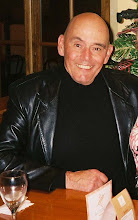Anonymous sources are the bane of a reporter’s existence, and have been at least since Bob Woodward and Carl Bernstein used them extensively to unmask Watergate and topple Richard Nixon.
Frankly, writing as someone who has been covering news since the late 1960s for everything from local newspapers to major market TV and radio stations, to a major business newsweekly, journalists don’t like citing anonymous sources any more than much of the public likes reading pieces that quote people without attribution. Alas, more often than not, the reality is that in a highly-explosive story such as my piece about Sarah Palin I posted, granting anonymity may be the only way to get a source to agree to be interviewed.
So I am not surprised that a number of readers who wrote comments about the article raised questions about my sources. It has happened before, especially when I tackled a subject that raises a lot of dust, and it will happen again. Although I won’t reveal any sources – I honor promises of anonymity – let me explain how the story unfolded and sources came to my attention as I did the reporting.
Desperately Seeking Lucille
When Palin’s name began leaking out the morning of Aug. 30, I sent an e-mail to an old friend from childhood who has been teaching in Alaska since he finished far too much graduate school, basically asking, “Who is Sarah Palin when it’s not raining and what was she before?”
He wrote back with not just a lengthy, invective-filled diatribe against her and the horse she rode in on but also a link to a 63-page vetting report (http://mudflats.files.wordpress.com/2008/09/palin-2006-vetting.pdf) on Palin he said was done up some time ago by Alaska Democrats. After reading it – information in the dossier goes all the way back to 2002 – I wrote again asking if he knew people I could contact for a possible article. A short list of names was provided, including Lucille the Waitress, the much-discussed and oft-doubted woman who seems to have drawn the largest number of questions from commentators on the article.
And how does he know her? Well, like many people living on minimum wage and tips, Lucille holds a second job which, in this case, includes cleaning my friend’s family home every other week.
Lucille was the first person I interviewed. In her late 50s or early 60s, she was nervous even though I provided her with my friend’s name and suggested she call him first to verify who I am. She decided to proceed with the interview, which lasted about 10 minutes. Assuming she knew nothing about having to put an interview “off the record” or on a “not for attribution” basis before the interview starts. I asked Lucille if I could use her name in my article. She let me use her first name but not her last because she said she was afraid she might be fired.
I called my friend after the interview and, relating what’d said, asked if she was trustworthy. I was assured that, “It’d be easier for Lucille to hunt bears bare handed than to tell a lie.”
My old pal’s role in the article ends at this point.
Doing Legwork - Well, Dialling
Starting with the small handful of other possible sources provided to me, I began dialling. Some people would talk, others wouldn’t; some would refer me on to other possible interview subjects, others told me to go forth, be fruitful and multiply, in much coarser language before slamming the phone in my ear.
In other words, I relied on what reporters have always relied upon to unearth a story: Legwork, or what it was called about a hundred lifetimes ago when I was first starting out. More accurately, I used my phone. To answer one person who penned a comment to the original piece, this is how someone who grew up in Middle America, visited Alaska once in his life and now lives in Canada could do reporting on a story based up there. Flat rate long distance plans have worked wonders for journalism.
As I’ve been doing for 40 years, when I’d finish interviewing one source I’d ask them if they knew anyone else I might call. Thus, one source frequently begat a second which, often, begat a third. Thus, a picture of Sarah Palin began to emerge and the result was Alaskans Speak.
Do I wish more people would have spoken to me on the record and for attribution? Absolutely. Do I regret writing a piece that relied upon so many anonymous sources? Not one bit.
Tom Degan
1958-2023
To all Tom’s faithful readers of the Rant, we are sad to announce that he
passed away on December 7th, 2023. Thank you so much for th...

